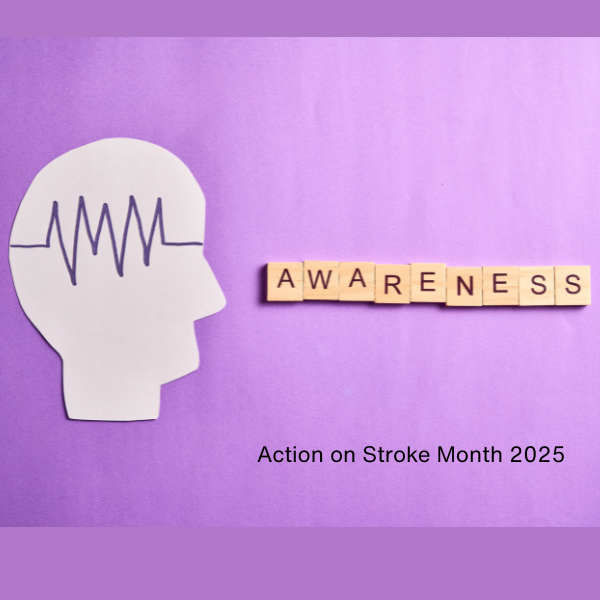Be Safe in the Sun!
Brain Cancer Negligence Claims.
Being diagnosed with brain cancer can be an incredibly worrying time for you and your family, especially so if your condition has been made worse due to medical negligence.
Brain cancer is a rare but serious condition, affecting around 12,200 people in the UK each year. The five year survival rate for brain cancer is around 12%, so it is absolutely vital that the condition is diagnosed and treated promptly for the best possible prognosis.
If your brain cancer has been mistakenly diagnosed as another condition (such as sinusitis or migraine) and your treatment has been delayed, you may be able to claim compensation. If your medical provider has been negligent in the care they have provided you with, and your condition has worsened, our team of highly experienced medical negligence solicitors can offer you advice and guidance.
Can I make a claim for Brain Cancer Negligence?
If your condition has worsened due to a misdiagnosis or any delay in treatment, you may be able to make a compensation claim. At Lanyon Bowdler, our team of medical negligence specialists are here to help guide you through the legal process, as well as providing any additional help you may be entitled to. Our team is your team, and we’re with you for the duration.
All medical professionals owe a duty of care to their patients, and any breach in that duty of care could constitute negligence and lead to a misdiagnosis and delayed treatment of brain cancer.
There are a number of potential ways in which a medical professional may be negligent, which can cause undue harm to patients, including:
- Your GP fails to carry out the required medical tests and examinations when you present to them with “red flag” symptoms of brain cancer
- Your GP fails to refer you to a specialist for further testing after you have presented with symptoms
- Your radiologist fails to notice abnormalities on your CT, MRI, or X ray scans
- Your test results are misread or misinterpreted
- Your brain scan is not performed accurately or the results are not interpreted correctly
- Your test results require further investigation but a follow-up does not happen
- There are unnecessary delays in referring you to a neurologist or oncologist
- Your brain tumour is wrongly diagnosed as malignant when it is benign, and vice versa
- The stage and location of the brain cancer is incorrectly analysed and reported
- Your surgeon makes an error during surgery which leads to unnecessary pain and suffering
- The treatment options are not fully discussed with you, or the specialist is trying to push you down a particular treatment path that is not advisable for you, leading to the wrong treatment being provided.
This is not an exhaustive list, and there may be other ways in which a medical professional could fail in their delivery of the appropriate treatment for your brain cancer. If you believ you have suffered because of Brain Cancer Negligence, it is crucial to face the process with the support of expert legal specialists. Contact Lanyon Bowdler today, and find out how we can help you.
Our Brain Cancer Claims Expertise
Lanyon Bowdler is a specialist firm of Medical Negligence Solicitors with years of experience supporting clients in cancer negligence claims, including those involving brain cancer misdiagnosis. Our expertise in this field is recognised by national organisations, peers, and clients across the UK.
The Medical Negligence Team is recognised in Tier 1 for the West Midlands in the 2025 edition of the Legal 500, which states ‘The ‘efficient and pragmatic’ team at Lanyon Bowdler adopts a ’truly personal approach’ when dealing with cases involving birth, brain and fatal claims. It also frequently handles high-value cases relating to amputations and spinal injuries’.
Chambers UK 2025 rank the department in Band 1 for the Midlands and states ‘an impressive practice group with a growing presence across the West Midlands. The team offers specialist advice across the full gamut of clinical negligence mandates, with particular experience in cases of surgical error, delayed diagnosis and failure to supervise those at risk of suicide. The firm is additionally skilled in cases relating to post-surgical negligence, brain injury and fatal claims.’
Listen here to Beth Heath and a former colleague from the Clinical Negligence team talk about the delay in diagnosis of Cancer, using fictitious, but typical cases to illustrate the challenges people are facing.
Your Brain Cancer Compensation questions answered
When cells in the brain multiply uncontrollably or spread abnormally, a tumour forms. The tumour may begin in the brain (what is known as a “primary” brain tumour) or the cancer could originate in another part of the body (such as the lung, breast, or bowels) and spread to the brain via the bloodstream – known as a “metastatic” brain tumour.
A brain tumour can be malignant (cancerous), or benign (non-cancerous). It may be a low grade tumour which is slow-growing and not immediately life threatening, or a high grade tumour which is aggressive, fast-growing, and poses a serious threat to life.
Brain cancer can affect both adults and children alike, although the risk of developing the condition does increase with age. Other factors that may contribute to a higher risk of developing brain cancer include exposure to radiation, certain genetic conditions, and a family history of the condition.
Some of the symptoms of a brain tumour can also be indicative of other, less serious, conditions such as sinusitis or migraines, as well as other serious conditions such as stroke or Multiple Sclerosis. If the wrong diagnosis is made, it can lead to a patient undergoing unnecessary treatment, whilst at the same time missing out on the treatment that is actually required. This delay in receiving the correct diagnosis and treatment can lead to the cancer growing and spreading, potentially making it untreatable, and therefore affecting a persons’ long term prognosis.
Brain tumours can be misdiagnosed as:
- Migraine – If the main symptom is persistent and severe headaches, it could be mistaken for migraine, especially if the appropriate tests are not carried out.
- Sinusitis – If there are mild symptoms such as pressure in the face and head, it could potentially be mistaken for sinusitis or another viral respiratory infection.
- Stroke – The brain tumour may be exerting pressure on certain areas of the brain, which can then mimic the symptoms of stroke such as confusion, severe headaches, and problems with balance.
- Multiple Sclerosis – MS is a condition which affects the spinal cord and brain, and presents with symptoms similar to those caused by a brain tumour, so neurologists need to be vigilant in their testing of patients who present with symptoms.
The symptoms of brain cancer often vary depending on the size of the tumour and which part of the brain is affected, but some of the key “red flag” signs to look out for include:
- Frequent and severe headaches
- Cognitive changes such as memory loss, confusion, and difficulty concentrating
- Vision issues such as blind spots, blurred/double vision, and loss of peripheral vision
- Visual hallucinations
- Tinnitus (ringing in the ears)
- Behavioural and personality changes
- Speech and communication problems
- Full body seizures, involuntary movements, or absence seizures
- Nausea, vomiting, or loss of appetite
- Progressive weakness and loss of coordination and balance
- Increased fatigue and pain
This list is not exhaustive, and some of the symptoms associated with a brain tumour can also be indicative of less serious conditions. However, any symptoms that are not usual for you should be brought to your GP’s attention so that they can make an assessment and refer you for further testing where necessary.
In most instances, the patient will present to their GP or an A&E department at hospital with some of the symptoms of a brain tumour – such as persistent headaches, cognitive issues, or problems with their vision. The doctor will assess them, and then refer the patient to a neurologist for further testing if they have cause for concern.
Upon seeing the neurologist, the following diagnostic tests may be carried out:
- Neurological examination – this will include hearing and eye tests in order to determine how the brain is functioning and whether or not the brain function is being impaired by the presence of a tumour.
- Neurocognitive tests – these provide a detailed assessment of the major functions of the brain, including the storage and retrieval of memories, receptive and expressive language abilities, dexterity, calculation, and the patient’s general wellbeing.
- Brain scan – several different scans may be carried out, such as an MRI scan to measure the size of the tumour; a CT scan to identify any bleeding or fluid-filled ventricles in the brain as well as any changes to the skull; and a PET scan to identify areas of the brain that are more active than others.
- Biopsy – a small sample of tissue may be taken from the tumour, where it is then sent to the lab for testing to assess the type and grade of tumour.
- Blood tests – these alone are not enough to diagnose brain cancer, but some types of tumour release certain chemicals and hormones into the blood, so a blood test can be useful in guiding the doctor with which tests to order.
If a brain tumour is suspected based on your symptoms, your referral to a neurologist should happen urgently. Any delay in your referral could have a detrimental impact on your condition. If your diagnosis and subsequent treatment has been delayed, you may be entitled to claim for medical negligence compensation. Our expert solicitors can help you to navigate the claims process in a simple and easy-to-understand way.
There are a number of potential treatment options for brain cancer which typically depend on the size, location, type, and grade of the tumour, as well as the rate at which the tumour is progressing. Other factors that can influence the treatment plan include the age and general health of the patient. Treatment options are typically discussed by a multidisciplinary team of clinicians including neurologists, neurosurgeons, and oncologists, in order to ensure the best possible course of treatment for each patient.
Treatment will usually include:
- Steroids and medication to provide symptomatic relief
- Radiotherapy which uses beams of radiation to kill cancerous cells
- Chemotherapy which uses anticancer medication to kill the cancer
- Surgery can be used to remove the tumour in some cases
- Genomic biomarker treatments whereby molecular profiling allows doctors to prescribe personalised targeted treatments
If you believe that your brain cancer treatment was below the standard expected, and your condition was made worse due to negligent treatment, you may be entitled to claim compensation. Please get in touch with us today and our team of medical negligence experts will be happy to help you.
What our clients say.
Contact our Brain Cancer Negligence Solicitors
Lanyon Bowdler’s team of medical negligence lawyers have years of experience supporting claimants to get compensation for brai cancer misdiagnosis cases.
This condition is extremely distressing itself, with deep impact on the patients and their families and loved ones. Dealing with negligence, misdiagnosis or late diagnosis because of the fault of medical professionals or establishments can be even more traumatic.
Our cancer negligence lawyers can help you get justice, and receive the best compensation you are entitled to.
Lanyon Bowdler’s committment to great client service and communication is highlighted by the consistent praise our firm gets from organisations such as the Legal 500 and Chambers UK.
We have offices in Shrewsbury, Telford, Oswestry, Ludlow, Hereford, Bromyard and Conwy, where our friendly, knowledgeable staff will be happy to welcome you for an initial chat about your requirements.
Meet the team.
Case studies.
Latest knowledge.
Our awards and accolades.
Get in touch.
"*" indicates required fields

 Back
Back






























 Blog
Blog



 Case Study
Case Study

 Podcast
Podcast













